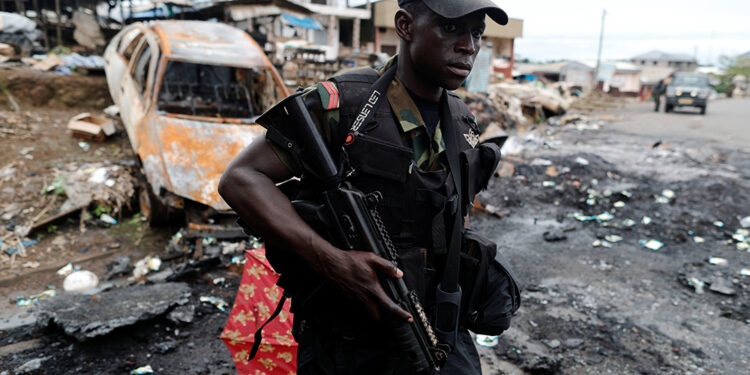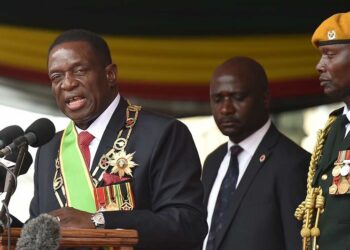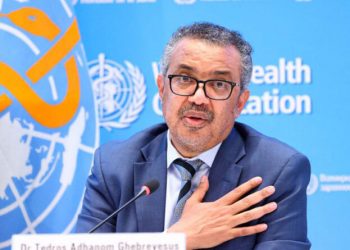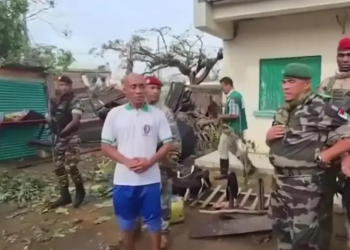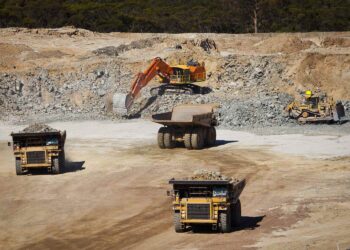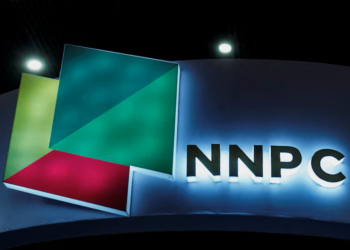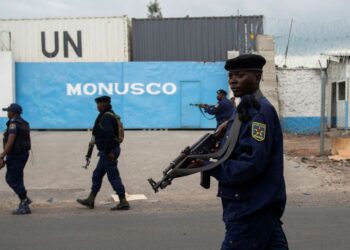By Jacqui Cho*
In central Africa, a violent conflict has been unfolding for nearly eight years. What began in 2016 as peaceful protests by lawyers and teachers against the increasing “francophonisation” of the legal and education systems in Cameroon’s anglophone regions quickly escalated into an armed conflict between separatist groups and government forces.
It has come at a devastating human cost. With both sides of the civil war using education as a weapon, over 700,000 children have been forced out of school since 2017. By October 2024, the conflict had resulted in more than 6,500 deaths and displaced over 584,000 people internally. More than 73,000 have been forced to seek refuge in neighbouring Nigeria.
Yet Cameroon’s government has refused meaningful negotiations. Though a key party to a conflict that remains unquestionably unresolved, Yaoundé insists that the situation is under control. In practice, it has pursued a dual strategy of military repression paired with a façade of dialogue. Behind the scenes, it has quietly stalled and derailed authentic efforts for peace.
Why has Yaoundé been able to avoid a peace settlement with so little international backlash? I sought answers as part of my PhD research in mediation, focused on the conflict in Cameroon.
In an era of revived rivalry between great powers, Cameroon has learned to navigate and exploit the interests of competing global actors. Western governments, eager to keep Cameroon within their sphere of influence and fearful of growing Russian and Chinese engagement, have not applied pressure for peace. Pushing hard for negotiations would risk jeopardising relations with Yaoundé – an outcome western capitals are keen to avoid.
Cameroon’s case reveals a broader trend. Across Africa and beyond, the post-cold war norm of resolving political conflicts through negotiation is losing ground. In its place, a militarised approach is becoming increasingly common. Global powers are tolerating, even encouraging, forceful approaches. This is particularly true when the regimes in question serve, or help protect, their respective strategic interests. This shift is quietly reshaping the rules of conflict resolution, with serious implications for peace and democracy.
Calculated defiance of dialogue
Between 2019 and 2022, Switzerland attempted to facilitate peace talks between the Cameroonian state and various separatist groups. The process failed, largely due to the Cameroonian government’s aloofness and lack of commitment. When the Swiss initiative was quietly shelved, there was little international backlash.
Cameroon’s ability to walk away from the facilitation effort, while escalating military operations, was a result of its diplomatic manoeuvring within the Franco-Russian rivalry. By signing a military deal with Russia in April 2022, Cameroon signalled to France and others that it had diplomatic options. This move reportedly shifted France’s stance to one of allowing Yaoundé to do as it pleased, as long as it remained within the French sphere of influence. The French president’s visit to Cameroon just months afterwards reinforced the idea that strategic relationships would take precedence over conflict resolution or democratic norms.
Cameroon has also cultivated a circle of “quiet enablers” over decades. Its strong relations with states as diverse as the US, China, Israel and Japan have similarly provided tacit support as Yaoundé took a more militarised approach and have shielded it diplomatically.
Global drift towards force
The anglophone crisis in Cameroon illustrates a troubling global development. While negotiated settlements were the dominant, or preferred, model for resolving conflicts in the post-cold war era, today that model is under threat.
This challenge to the norm of negotiated settlements stems from various sources. On the one hand, changes within so-called liberal western states, particularly since the “global war on terror”, have led to a renewed emphasis on security, sometimes at the expense of liberal democratic principles. This has generated greater tolerance for authoritarian regimes and tacit acceptance of the use of force.
On the other hand, rising powers like Russia and China are promoting alternative models of conflict management. They favour approaches that empower strong states to maintain peace, even through the use of force. Russia, for example, views its military engagements in Syria as a form of “peacemaking”. It prioritises order over justice. China’s model for peace similarly focuses on building a strong central state.
African states are far from passive observers in this evolving landscape. Drawing on experiences from the eras of empire and the cold war, African states are looking to further their own interests both domestically and internationally.
It’s not just global powers objectifying Africa. It is also about African actors strategically playing the game because they benefit.
Elections and the stakes for democracy and governance
With a presidential election looming in October 2025, the stakes for Cameroon’s democracy, governance and peace could not be clearer. At the age of 92, President Paul Biya has formally announced his candidacy for an eighth term.
Opposition parties describe a system already rigged against them, with reported incidents of harassment and intimidation. The ongoing conflict in the anglophone areas is expected to make voting harder, if not impossible. This is a situation that will likely favour Biya.
The regime’s ability to defy calls for dialogue is emboldened by geopolitical cover and a fragmented opposition. It raises the risk of a militarised status quo being mistaken for stability. Everyday violence, kidnappings, and killings – especially in rural areas – have become normalised, with little international outcry. The regime continues to pursue its strong-arm tactics without concerns about international repercussions.
Dangerous precedent
The case of Cameroon’s anglophone crisis is emblematic of a broader, worldwide struggle between a negotiations-oriented model and a militarised approach to ending violent political conflicts. The erosion of the norm of negotiated settlement, coupled with the increased agency of African states to withstand external pressure, brings an additional challenge to an already difficult process of encouraging conflict parties to come to the table.
Cameroon shows how global silence and strategic use of the geopolitical environment can give rise to and legitimise conflict resolution through brute force. Without a renewed commitment to inclusive dialogue and political settlements, the precedent being set today may shape the conflict management of tomorrow across Africa and beyond.
ـــــــــــــــــــــــــ
* PhD Fellow, swisspeace Mediation Program, University of Basel















































